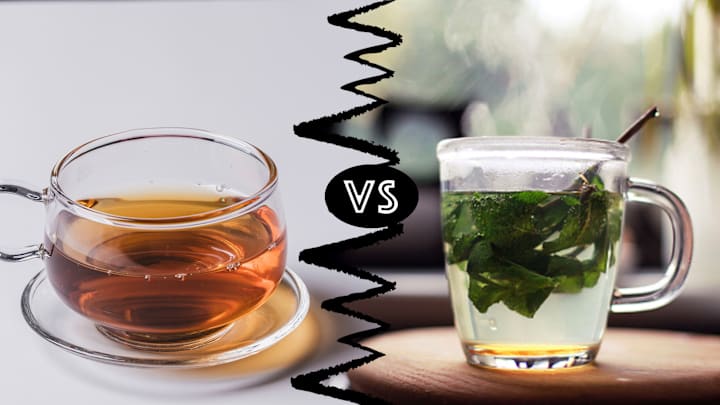Snuggling up with a hot cup of tea is the highlight of a busy day for many folks. In fact, the beverage is the second-most popular drink worldwide, right behind water. While the “caffeinated” label on certain tea products is self-explanatory, there’s much confusion over decaffeinated vs. caffeine-free tea. There’s a difference between the two descriptors.
You might assume decaffeinated means a drink contains no traces of caffeine, but that’s not the case. The leaves in decaf tea have been subject to a decaffeination process, which removes as much caffeine as possible. Manufacturers typically do this using one of four solvents: methylene chloride, ethyl acetate, carbon dioxide, or water. No matter the method, a minuscule amount of caffeine is still found in the product after it’s processed.
Art of Tea spoke with tea expert Nigel Melican about the “30-second decaf” theory, which suggests it’s possible to remove most caffeine from tea leaves by washing them for 30 seconds. He debunked the idea, stating, “you just cannot significantly decaffeinate tea by using a 30-second hot water wash.”
Only true tea can be decaffeinated, because it’s the only tea with any caffeine to remove in the first place. Green tea, black tea, and white tea are all leaves of the same plant—Camellia sinensis. Their color and flavor changes through the oxidation process, but they all start as the same crop.
Caffeine-free, on the other hand, only applies to tea that never contained caffeine to begin with, and therefore isn’t truly tea. Mint, rooibos, chamomile, hibiscus, and ginger tea are all technically tisanes (pronounced ti-zahns), though they’re more commonly called herbal teas. These herbs and flowers don’t need to undergo any sort of decaffeination process as they are naturally caffeine-free.
Although there’s hardly any caffeine in decaffeinated tea, the drink can still affect people who are extremely sensitive to the substance. If you really want to cut caffeine from your diet, maybe stick to the herbal stuff.
Read More About Drinks:
